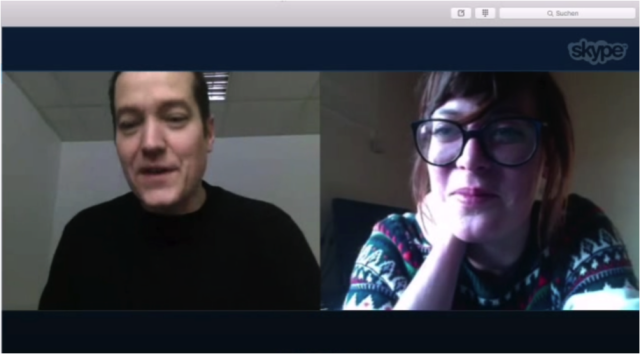Describing reality from multiple sides
In conversation with Lars Petter Hagen and Leila Albayaty
 What milestones or re-arrangements did you cross or experience from the beginning until today?
What milestones or re-arrangements did you cross or experience from the beginning until today?
Leila: When I presented the project at Forecast, it was very fresh and pretty much centered around my personality. I think that Lars’ way of working with me and understanding the different sides the project has given more value to it. The project now travels from the Western side to the Arab side, absorbs the various music styles and embraces its complexity. Thinking back to September and the process all the way through to our discussions and work now, I can say that I got more and more confident with the project throughout the time, and that I like how it is developing.
Lars Petter: I would say, though, that the core of the project is still the same. It is still about discovering a personal cultural identity and seeing this personal cultural identity in a highly global political context. A context that has been highlighted again in the past months as well, you know, with the terror in Paris and the general situation we have in the world with Arab and European culture, which both perhaps seem to be polarized at the moment.
Leila’s project was from the beginning an attempt to find parallels between Arab and Western culture. The project has definitely taken different forms now, but the core is still a personal travel through the two cultures that Leila belongs to, her father being from an Arab culture and she having been brought up in Paris. You will see, the sound and visual media come together in a way that describes a reality from multiple sides. And with very open ends, which is interesting in itself. So, I think this openness has been very crucial to the project. I think it is, in a way, a project about openness. It has been an important part of the project to not limit that openness, to keep possibilities open, despite the practical challenges, despite the financial challenges, we try to keep the openness. The last couple of weeks or so were important. There was a frustration at one point, where things seemed not to be developing very fast, but then suddenly a lot of pieces just came together and the project made a big step just two weeks before Christmas. So it has been an interesting journey.
How do you work together, how is the mentoring process going?
Leila: Lars gets my points and the topics of my research very fast. Little by little, he sends me to different starting points where I can do more research and equally, I propose further topics of interest to him. What I saw happening from the beginning was that he accepted the freedom of my project and its capacities and he was supporting it very much.
Also, the mentoring process helps me keep the structure of all the parts of the project together and, at the same time, drives me to search more, go more places and dig deeper.
It is really this openness that I feel very good with, because I discovered a lot of things which I would never had discovered.
Lars Petter: It is a very complex project that Leila is making. That is why it is very important to have this constant dialogue with her, we do it mostly via Skype, also sometimes we meet in person. In our dialogue, we try to explore the further directions the project could take, because there are a lot of different angles within the project that are equally relevant, but it might not be possible to realize all of them at the same time. We have a lot of material, since we have been filming in Paris, Cairo and Berlin, and we made sound recordings in all of the cities as well. Up to this point, it has been very much about discussing what is really the central point of the work. So this is really the central issue we are discovering and trying out: Finding a form which expresses the various ideas that Leila has.
Here you can find more Information about Leila’s project From a Palm Tree to the Stars.